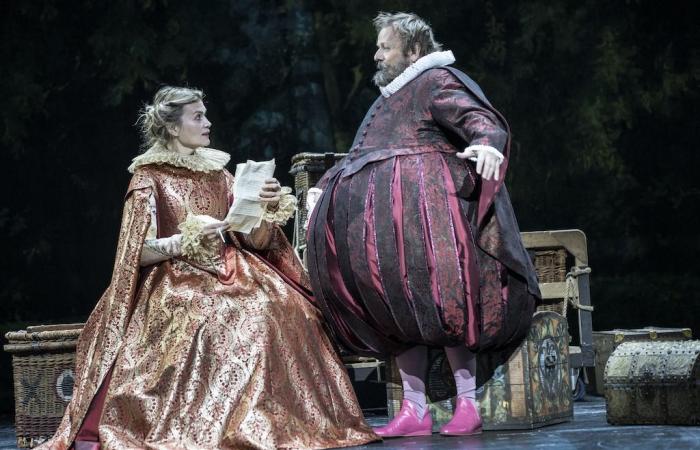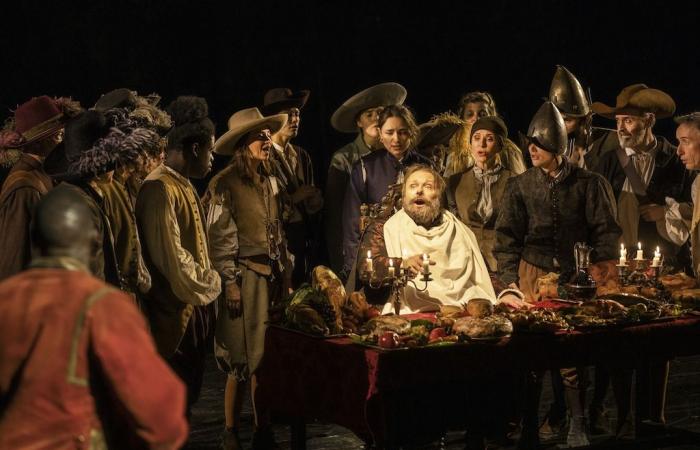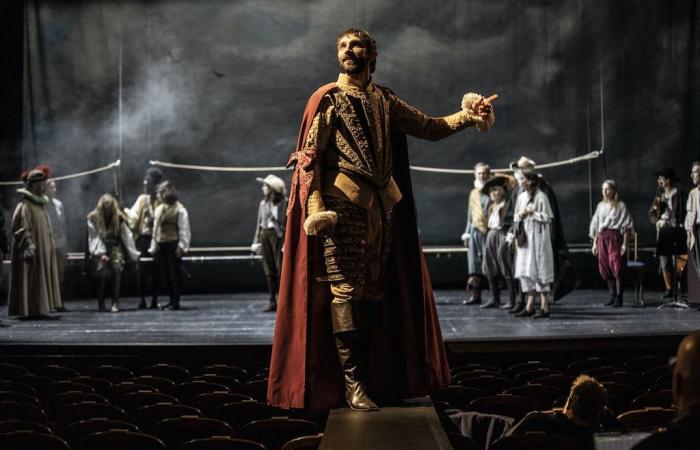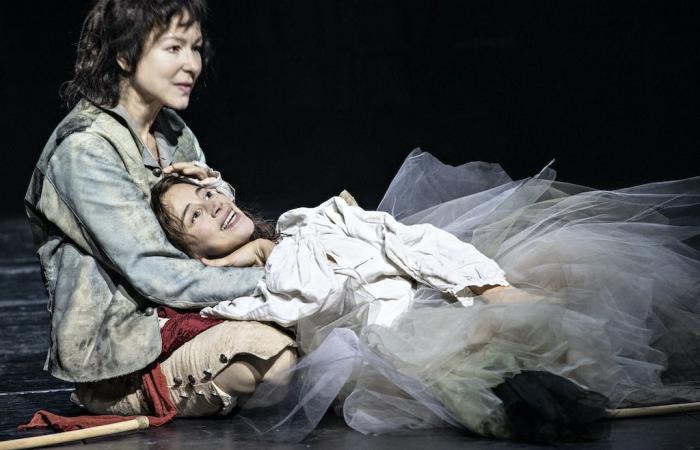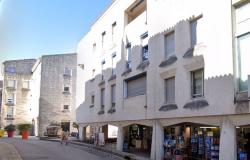For the last creation of his mandate at the head of the Comédie Française, Eric Ruf signs the staging and adaptation of Paul Claudel’s masterpiece, “Le Soulier de satin”, seven hours of performance carried by the the incandescence of the actors and the beauty of Christian Lacroix’s costumes. It is a true journey to the heart of theater and poetry which can be experienced as a unique experience.
A love story from the time of the Conquistadors
©JeanLouisFernandez
“Everything must seem provisional, in progress, sloppy, incoherent, improvised in enthusiasm! With successes, if possible, from time to time, because even in disorder, monotony must be avoided. » This is how Paul Claudel, poet and playwright who draws his inspiration as much from the Bible as from his diplomatic travels around the world, wild in the manner of Arthur Rimbaud and inhabited by a deep mysticism, presents this world-work , a beacon of epic theater and hallucinatory lyricism. The work, composed between 1918 and 1924, takes place over thirty years, during the Spanish Renaissance and the conquest of America, and continues in the 17th century with the creation of colonial trading posts in Asia and Africa. But this backdrop is only there to serve a sublime and impossible love story, the one which seizes with a burning fire Doña Prouhèze, played with astonishing power by Marina Hands, and Rodrigue, while Prouhèze is the official wife of Governor Don Pélage. This play, rarely staged, challenges actors and spectators to do the impossible.
Spooky epic
©JeanLouisFernandez
Four days, which themselves condense a third of a century, take us on a shipwrecked boat from the Atlantic Ocean to the African coast. It is impossible to clearly summarize this plot which wildly knits together both the romantic passion of a young woman and the political and military authority of her elderly husband; the masculine need for conquests and the sadistic perversity of an evil cousin, Don Camille, as well as the hallucinated courage of Doña Musique, herself dreaming of the King of Naples to escape forced marriage. These four days, which cross the Citadel of Mogador in Essaouira in Morocco, the shores of Sicily, Panama and Japan, also constitute the mirror of the diplomatic and sentimental life of Claudel, echoing his impossible love for Rosalie Vetch, a married woman who had to return to Europe to give birth. Body and soul swirl in an impossible fight and constitute the common thread of this soap opera where Christian passion and carnal desire oppose each other, in the utopia of a total, absolute, definitive love.
Un spectacle total
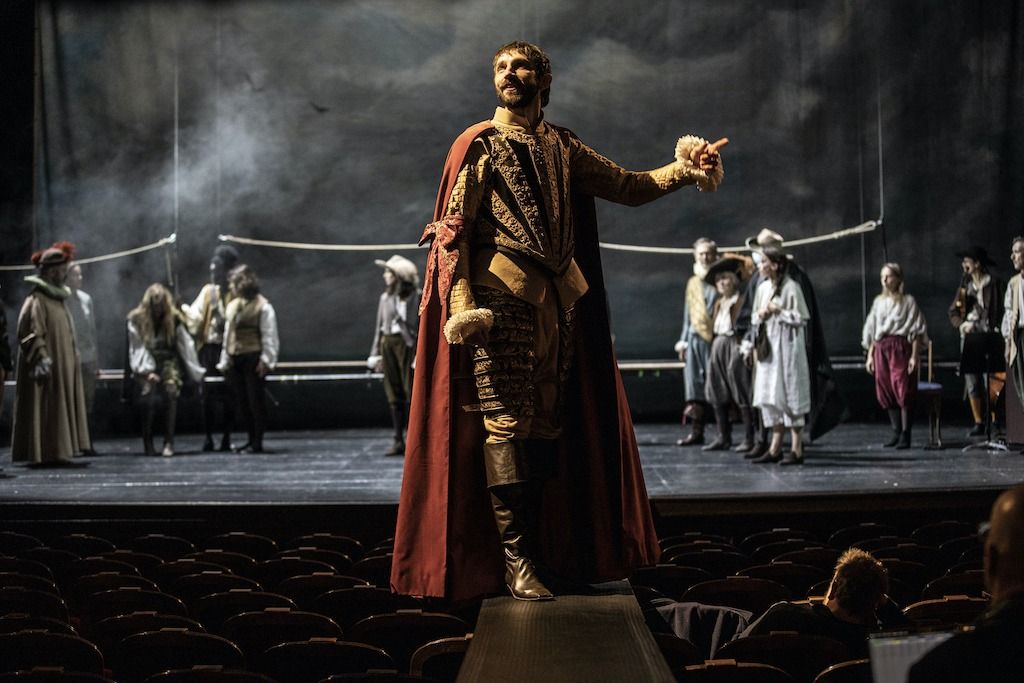
©JeanLouisFernandez
Eric Ruf, a great lover of Claudel for a very long time, began working on this work during confinement with the represented reading of each of the four days at the table. Today, the eleven hours of theatrical performance, created by Antoine Vitez in the Cour d’Honneur of the Avignon Festival, are reduced to seven hours of show interspersed with breaks, with cuts in the initial text. But above all, the director’s concern was to make this text lively and vibrant, to make the language blaze with the body of the actors. The success of this show, applauded standing at 11:30 p.m. when the curtain falls, is precisely due to this effervescence of rhythm and bodies, which carries the text with sensual energy. On the immense bare stage, a trio of musicians, Vincent Leterme conducting and piano, Merel Junge on violin and trumpet and Ingrid Schoenlaub on cello, sit discreetly and perform pieces by Bach, Marais, Scarlatti or Schubert, with wonderful delicacy. No decor, apart from a few rare painted canvases, interferes with our understanding, but a narrow footbridge crosses the middle of the tide of orchestra spectators: this wonderful idea allows us to experience each moment with the actors, in symbiosis. of the play, every emotion, to admire their performance and the beauty of the costumes.
Brilliant distribution
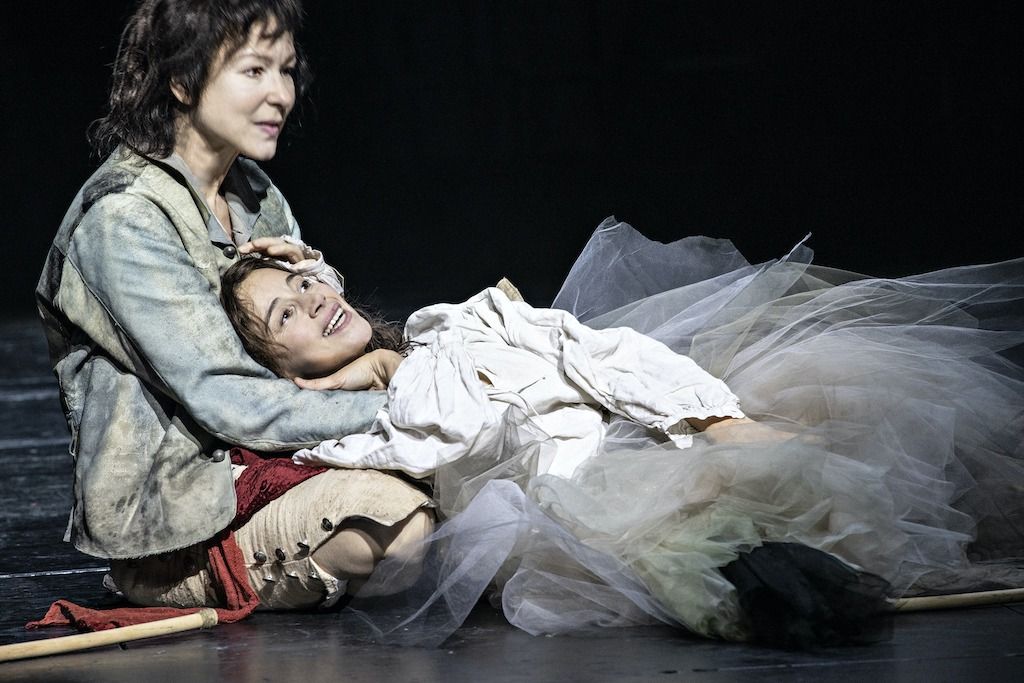
©JeanLouisFernandez
As mentioned, Marina Hands is now taking over the role of Prouhèze, previously played by her mother, Ludmila Mikaël, in the production by Antoine Vitez. And Didier Sandre, who was Rodrigue in 1987, today takes over that of the young woman’s husband, Governor Pélage. This handover acts as a theatrical rebirth: Marina inhabits her character as a Claudelian heroine as a passionate lover, both victim of political fate and mistress of a destiny that she shapes in her own quivering way. This role of a woman, dominated and powerful at the same time, goes through all the states of passion and despair with a rare intensity. When she crawls in rags on the stage catwalk, escaping from her golden prison like an animal running through the brambles towards the light, when she also escapes into the air, a mermaid hanging from the rope of her guardian angel , always splendid, strong and fragile at the same time. Didier Sandre, for his part, settles with ease and finesse into the role of the husband with the perverse and mature malice of a Machiavelli. In the role of the lover Rodrigue, Baptiste Chabauty reveals himself more at the end of the show, a celestial and crippled tramp, as a seller of holy images. Florence Viala and Serge Bagdassarian take turns introducing and commenting on each painting, each day with great talent and humor. Laurent Stocker is irresistible as Balthazar and King of Spain, Alain Lenglet as mystical as can be, while Christophe Montien reveals himself to be more diabolical than ever as Don Camille. The young residents, Birane Ba, Sefa Yeboah, Edith Proust rub shoulders with established actors, Christian Gonon, Danièle Lebrun, Coraly Zahonero and Suliane Brahim who both form a duo of magnificent young girls in the last part. Let us also note the sumptuous beauty of the costumes by Christian Lacroix, whose splendor is never flashy, the embroidery and satins of divine elegance, in the cleverly sophisticated lighting of Bertrand Courderc. A splendor.
Helen Kuttner

